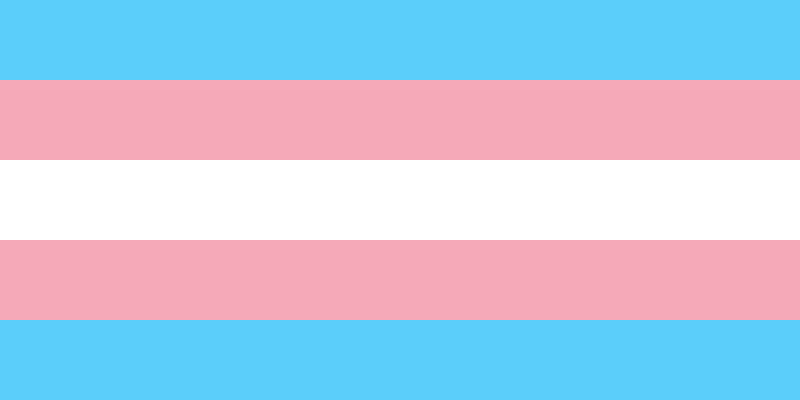
In light of yet another movie with a cis male starring as a trans woman, it is more important than ever that Hollywood starts to portray transgender people in the right light.
“Trans people are way underrepresented in trans stories,” says Shadi Petosky, the executive producer for Amazon’s Danger & Eggs. “We’re newsworthy, so our stories are valuable, and these cis writers and producers want to exploit that. Even Transparent had no trans writers Season 1 because they said we didn’t exist. Cis people hire themselves to write our stories, pretend to be us, and then give themselves awards for it. Year after year.”
This weekend, Anything debuted at the LA Film Festival with a cisgender actor in a trans role. At the same time, another film was making its debut: And Then There Was Eve. The latter making its debut on Sunday, June 18, at the Arclight in Santa Monica. The indie film features Rachel Crowl, a transgender actress, in a transgender role….and there’s hardly been any press about this movie.
Rachel Crowl spoke to Solzy at the Movies yesterday and you can read that interview here.
Actor Scott T. Schofield made history as the first transgender actor to appear on daytime television when he appeared on CBS soap opera, The Bold and The Beautiful.
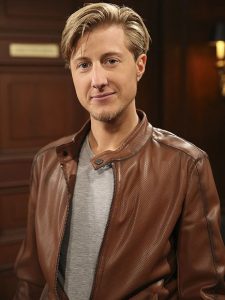
“First, I’m an actor and I appreciate actors,” Schofield says. “I think Leto and Swank particularly have given some of the best performances ever while playing trans. That is not the issue, for me. First, as Jen Richards has pointed out, it makes mainstream culture think she is ‘really just a man’ and I am ‘really just a woman,’ which dehumanizes us by taking away our dignity as being who we know we are. That’s a lie, and toxic, and I personally have experienced so much hardship in life because of it. Then, it takes jobs away from us, a community 2-4 times more likely to be unemployed generally, not just as actors (where the number is infinitely higher). It robs all of us of opportunities to see more people do good work.
“I’m disappointed that the press is giving airtime to a casting practice that is so disappointing and unnecessary, while a truly delightful and nuanced performance by a trans actor – Rachel Crowl in And Then There Was Eve could have been big news. Well, it will be, when people see it.
“There’s a long history of white cisgender, heterosexual male actors playing, in sequence: a person with a disability, a gay man, and now, a transgender woman – as a direct path to an Oscar. They literally get more privilege in Hollywood on the backs of characters that could give voice to actors who are historically underrepresented on screen. Think about it.
“In the current entertainment economy, where more and more independent film has greater chance of getting seen on so many platforms, I think the ‘But we need a big star to make this movie about a story nobody would care about otherwise’ is going the way of everything else that no longer works for the real world. And I’m holding the door for it.”
Schofield makes some really good points with the change in how people are watching movies. A blockbuster movie with a big star still has the ability to tank if so many critics pan it.
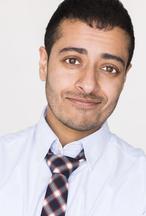
“Stories about trans people need to involve trans people at the development stage, and from a casting perspective course there’s a huge push to have a trans character be portrayed by a trans actor,”actor-producer Shaan Dasani says. “But that also depends on what stage the character is in their transition, for example does it make sense to cast a binary looking transgender man to play a female bodied character who is pre-transition? You get what I mean? We have to look at the character and understand where they are in the process. Regardless of the casting choice, there has to be an attitude of inclusiveness from the decision makers, because the resources are there. There are organizations like GLAAD, Transgender Talent, Actors Access, and others that make it easier than ever to find transgender actors, writers and directors.
Mikki del Monico is a transgender filmmaker, writer-director of Alto and has been actively writing his thoughts on the matter at Huffington Post.
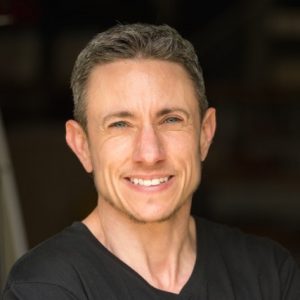
“If you’re talking about big media, the MEDIA with a capital M, there are so many moving parts so it’s essential to get in the ear of whoever has their hands on the controls,” del Monico says. “It isn’t enough to say ‘hire more trans people.’ People—particularly those in positions of power—have to feel incentivized to move outside their comfort zone, or they will more than likely stick with what they know. As a community, we can look to how other marginalized groups have improved their representation and see if we can replicate areas in which they’ve had success.
Mari Walker is a writer/director/editor. She spoke at length about what can be done to move things forward for transgender representation.
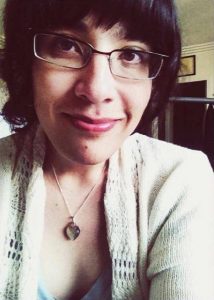
“There are many ways in which trans representation can move forward!
“I can see how a cisgendered actor might approach a trans role as merely another acting challenge but it’s not the same as playing someone from a different upbringing or country. However these types of roles should be given a different consideration. I don’t believe cisgendered actors take these roles with ill intentions of stealing roles from trans actors.
“For many of these characters, the physical presence of the characters trumps the psychological effects of being trans. Being someone who spent the majority of her life in another gender’s clothing, you’re never really comfortable and being a cisgendered actor wearing feminine clothing is another stumbling block to a genuine performance. Unfortunately, performances by cisgendered actors often take on a tone of hyper-femininity and over accentuation of movement.
“We are also stuck telling the same types of trans narratives. I’ve grown tired of watching the initial exploration of being trans, like the first time Lili covers herself with a dress while posing for a portrait in The Danish Girl. She takes in a sharp, heavy breath as she touches her wife’s dress and is emotionally overwhelmed. While it may be representative of some trans women’s experiences, it can come across to audiences as over sexualized, which further solidifies the perception that being trans is more of a physical state than an emotional one.
“I’ve screened at several film festivals in the last couple of months and been disappointed to see so few trans filmmakers. While it’s essential for actors and actresses within the trans community to put pressure on filmmakers to cast trans roles properly, we must also have more trans directors, writers, producers and showrunners, who can advocate for diversity through pre-production and casting. Dallas Buyers Club is an example of a film that would’ve benefited from more trans representation during development.
“From my understanding, Rayon’s character was an amalgamation of several real life people in Ron Woodroof’s real life. However, she’s constantly misgendered throughout the entire film, has a tragic arc and few scenes that address being trans. The original draft of the script appears to have been completed in 1992 and received a co-writing polish in 2000. The film eventually went into production in 2012. It’s frustrating that the film went through 20 years of development without these major character issues being addressed.
“While it’s possible they wanted to keep some of the vernacular accurate to the times (as the film is set in the 1980’s), we also have to weigh the responsibility of telling stories that are supportive of disenfranchised communities. Was it more important for Rayon to be called “he” by Ron’s character after she succumbed to AIDS to reflect the times, or would it have been stronger for Ron to call Rayon “she”, further reinforcing her status as a trans woman?
“As a result, I found the character to be very problematic. I feel it would have been less so if more trans filmmakers were involved both in front of and behind the camera. Now we have casting agencies like Transgender Talent and Facebook groups where people within the community can share their work and projects. The job now is getting these resources into the hands of major casting directors and producers.
“I’m a trans filmmaker, but I’m also a Japanese-American, biracial woman who’s lived in all four corners of the United States. We all wear multiple identities and once we break past the barrier of looking at one group or community as completely homogeneous, we will see that trans performers have the opportunity to play a wide range of characters who just happen to be trans—post office workers, pizza delivery guys, wives, brothers, and daughters.”
Casting directors have some say in the matter with who they cast in a series or film. I spoke to Russell Boast, a Vice President of the Casting Society of America and currently heads up the Inclusion and Diversity and Training and Education Committees.
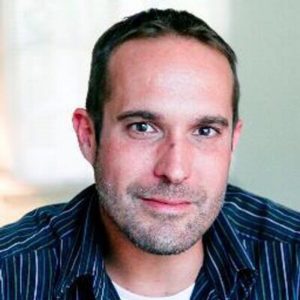
“Casting Directors have always been at the forefront of casting diverse actors,” Boast said. “We get to suggest making a character a trans woman instead of a cisgender female and many casting directors strive to use diverse actors who accurately portray our society. Education is key, the trans community has consistently been under and misrepresented in the media until recently. I think it’s is important that all players in the entertainment industry take a moment to understand and embrace the trans community in order to become educated and then advocate for accurate representation.”
Lately, there have been some cis men starring as trans women in films, whether it’s Eddie Redmayne in The Danish Girl or Matt Bomer in the just-premiered Anything. Something needs to be done to ensure that trans women get cast in these roles especially with notable talent like Jen Richards, Laverne Cox, Jamie Clayton, Trace Lysette, Michelle Hendley, Alexandra Billings, and Alexandra Grey. There’s many more of us out there but we aren’t getting the work opportunities.
“Since Laverne Cox’s appearance as Sophia Burset on Orange Is the New Black, Hollywood is gradually starting to understand that putting a male actor in make up and a wig is the furthest thing from a respectful portrayal of a transgender woman,” Boast tells me. “The issue now is that the accurate portrayal of the trans community is a new phenomenon to film and television and young up and coming transgender actors and actresses haven’t historically had the same opportunities that cisgender male actors have. So, when producers are looking for an actor who is a ‘known quantity’ the cis list is way longer than the trans list. It’s time for the industry to focus on accurate representation. Shows like This is Us, Sense8, and Stranger Things are huge hits because they are relatable, accurately represent life, a ‘known quantity’ is becoming less important to viewers. I’m looking forward to us seeing trans actors playing non-trans roles on screen. That, for me would epitomize accurate inclusion of diversity, across the board.”
What, then, is the Casting Society of America doing to be more trans-inclusive?
“The CSA Inclusion and Diversity Committee have been working closely with GLAAD and companies like Transgender Talent and in Los Angeles to facilitate inclusivity and accurate representation of the Trans community in the media,” Boast says of their efforts. “We have been offering free seminars and classes both in Los Angeles and New York specifically for actors who are transgender, non-binary, gender non-conforming, gender-queer, or gender questioning. We are also developing an inclusion and diversity handbook for the entertainment industry, which will detail how to be fully inclusive, from the creation of a casting breakdown through the audition and hiring process, and finishing with helpful tips on how to prepare your production team for Inclusivity on the day(s) of the shoot.”
It’s not only the opportunities for performing in film and television but we need to be given the opportunities to get our stories out there. I moved to Chicago because of the improv scene and while I would love the opportunity to work in New York or Los Angeles one day, I think that we have a chance to help build up the opportunities for filming in Chicago. Earlier this year, I took Writing for TV and Film through The Second City Training Center. While I have plenty of ideas, I finished the course with an outline for an original sitcom pilot with a transgender lead and it’s set in Chicago. I’m not saying much otherwise as I still need to write the pilot script, register said script with the WGA, and submit to festivals but I have a story that’s worth telling. You can make the same argument about transgender writers and artists working in the comics industry. We have stories to tell in a way that cisgender writers just can’t relate to us.
If you like my work, please consider a donation to my virtual tip jar.
Please consider checking out some of the following essays and interviews to see what transgender talent are saying about trans representation in Hollywood:
Jen Richards: Matt Bomer Playing A Trans Woman Is More Than Problematic—It’s Dangerous
Michelle Hendley: There Are So Many Transgender Stories to Tell — and I’m Hell-Bent on Telling Them
Laverne Cox Opens Up About Cisgender Actors Playing Transgender Women
E. Oliver Whitney has profiled Ian Harvie, Alexandra Billings, Alexandra Grey, Trace Lysette, and D’Lo during the past month at ScreenCrush. In conjunction with GLAAD, ScreenCrush is responsible for the below video.




First off , we don’t need more representation of transgender in the media. If the end goal , as defined by all the LGBT activists is to fully transition into the opposite gender role, then are you a man or woman? Stop being a transsexual. Living in this middle waste land of being a tranzy has nothing but pain to offer a person. So why try to force society to promote and accept people as tranzys. Media and Hollywood doesn’t need transgender role models any more than it needs Jewish, communist, lactose-intolerant bisexual role models. Will seeing a TS or TV actor up on the screen significantly improve our lot? Will it pay our rents today? No, Trying to acclimate the general population to our condition and lifestyle is not having the desired results kiddies. I have been post op for over 25 years and have more unwanted attention and negative remarks in publich now than I have in the last 50 years.
Trans people make such a tiny percentage of the population, that it’s not only understandable they have a small representation in the media, but it’s also difficult to find trans acrtors who would play the roles on a satisfactory level.
Just as I don’t mind black actors playing “white roles”, like Idris Elba playing a god from nordic mythology, I don’t mind a biological male or a biological female playing “trans roles”. I care about the performance. They’re actors, they are suppose to play anyway.
This is a non issue, and in fact, it can cause real damage to both trans society and movies, if we suddenly start focusing if the person has the proper history of surgeries and hormonal treatments behind him or her to, for instance, play a certain role.
Cis men in trans roles can do real damage for trans folks because it’s hard for those of us who are straight trans women to meet a guy because straight cis men may have internalized homophobia when it comes to dating trans women. This is where what Jen Richards has written is very important. Trans people bring authenticity to roles and only have to focus on character. Cis folks will have to focus on so much more. It’s only difficult to find trans actors to play roles because we have not really been given the chance to get cast in them.
It’s not homophobic to prefer biological women who can give you children. Just like it’s not anti-tall to prefer shorter women, or anti-fat to prefer fit women. It’s preference, which is by the way at least partially determined by biology.
And like I said, it’s performance that matters to me when it comes to acting. And we’re either accepting all instances where the actor plays a role of a character that is supposedly of different ethnicity, sexual orientation or gender than the actor, or none of them. I choose to judge by the performance.
And trans gender are a tiny group, and out of this tiny group, just like in any other group, only a small percentage are actors, and out of that small percentage of a tiny group of people, only few have sufficient acting abilities.
Should all characters that are Polish be played only by Polish actors? Should all lawyers be played only by lawyers? Or should we judge by the performance?